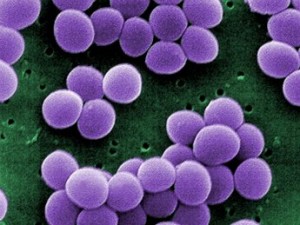You may have heard about MRSA (methicillin-resistant Staphylococcus aureusproduce) mainly for it affects humans. Unbeknownst to a lot of fur parents, it also affects companion animals. But there’s no need to panic. If you have a healthy dog or cat, there is little chance of your companion being infected with MRSA. Even if your companion does have MRSA, caught in time, he or she will survive with proper diagnosis and treatment.
We are learning more about MRSA thanks to Jill Moss, Founder and President of The Bella Moss Foundation in the U.K. Her rescue dog, Bella, developed MRSA following cruciate surgery. Sadly, it was not properly diagnosed and Bella ran through a complete spectrum of antibiotics to no avail. When Jill lost Bella to MRSA she decided that this would not happen to anyone else’s companion. Since 2004, the non-profit foundation has worked with veterinarians, the U.K. government and the International Society for Companion Animal Infectious Diseases – and is making a good start at doing the same in the U.S. – to educate and inform vets, fur parentss and pet caregivers about MRSA.
“Pet owners need to know that although MRSA and other resistant infections can be very serious – even fatal -they can, if detected early enough, be treated successfully,” says Moss. MRSA is not a death sentence.
It is important for fur parents to ensure that their companions receive the correct course of treatment. Just as in people, overuse of antibiotics in companions can cause antibiotic strains of microorganisms to evolve. Talk with your veterinarian on a case-by-case basis regarding the use of antibiotics to ensure that they are used responsibly.
As a fur parent, you should be sure that the veterinary practice you use suits you. Do not be afraid to ask what sanitary practices they have in place. Do they wash their hands between animals, after using the computer? Bacteria are everywhere.
MRSA, and the newer MRSP, are avoided with awareness and better hygiene protocols. Always be sure that if there is an infected area that is not getting better that your vet takes swabs and cultures as soon as possible for an accurate diagnosis of the problem that is delaying healing.
“Much as MRSA has emerged as a tremendous problem in human medicine, it is having a significant impact on animals,” says Dr. J. Scott Weese of Ontario Veterinary College’s Dept. of Pathology in Guelph, Ontario, Canada. “This impact can be wide ranging, including the obvious impacts of animal illness and death, as well as public health concerns and impacts on the positive relationship that people have with their pets. While MRSA will not be eradicated and the risks can never be eliminated, efforts of the Bella Moss Foundation are helping veterinarians and pet owners alike, through education and support.”
The more information that is disseminated, the sooner MRSA can be either avoided or treated before it advances.




